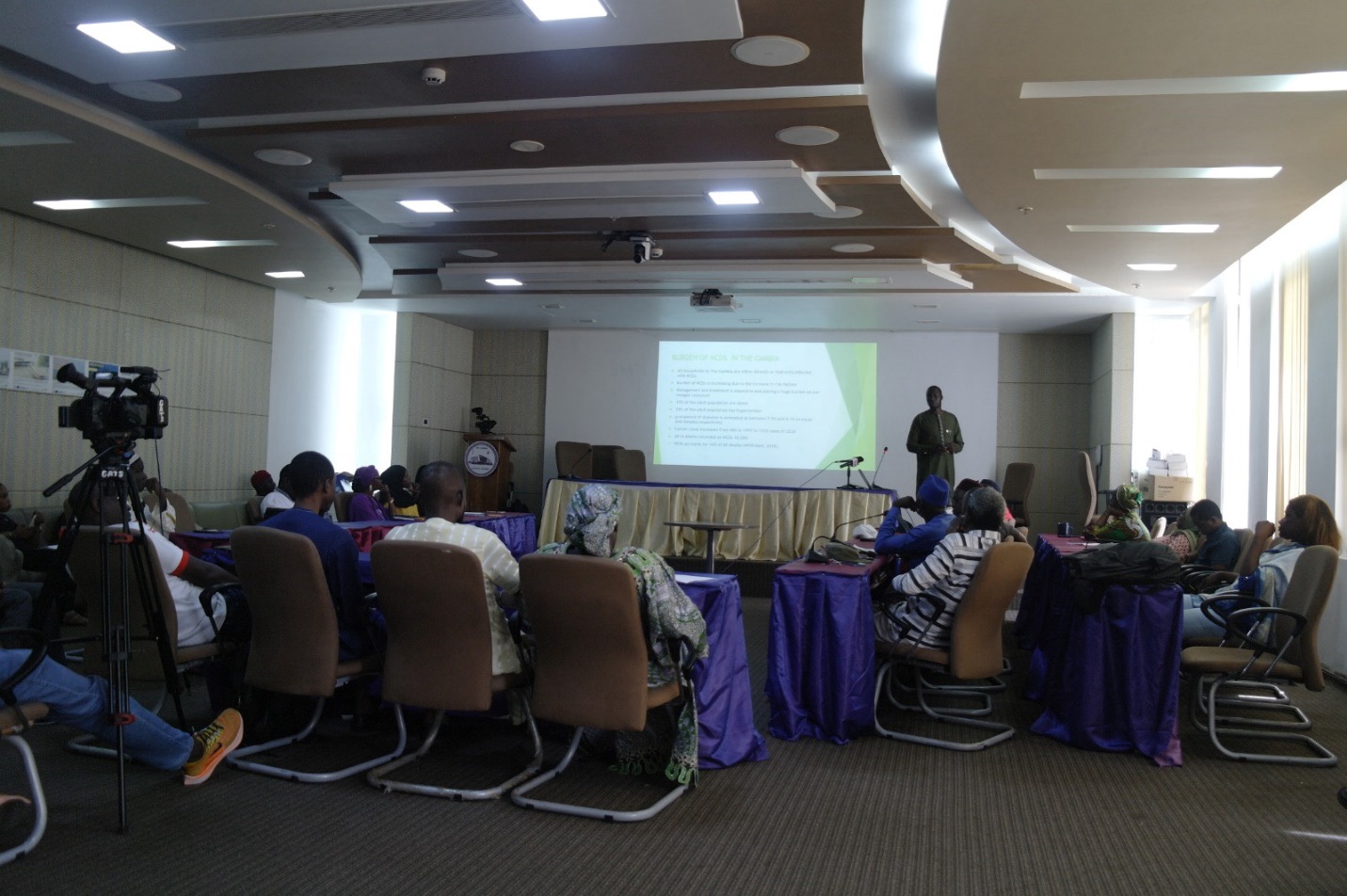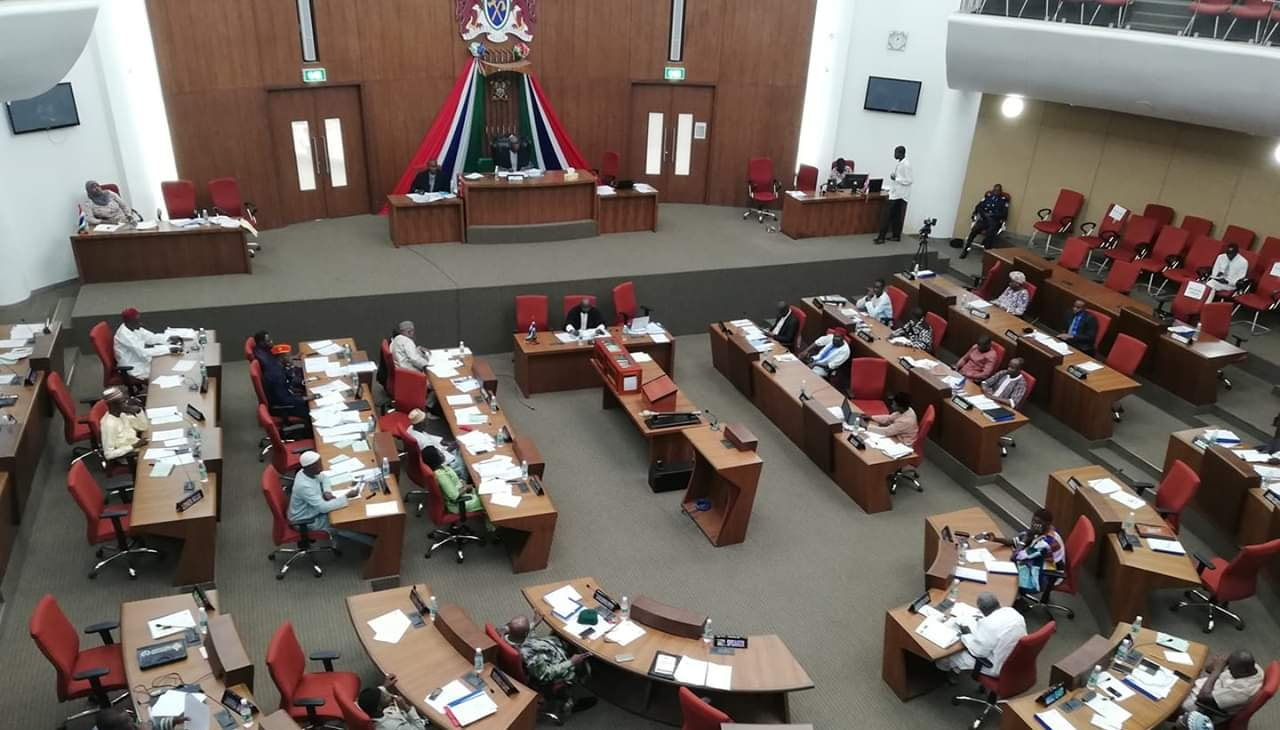By Yunus S Saliu
The Non-Communicable Disease (NCD) unit of the Ministry of Health on Saturday, 14th September presented its report on the current tobacco control situation in The Gambia to the National Assembly for sustainable financing.
In a brief remark before the presentation of the report, Honourable Billy Tunkara, a National Assembly member for Kantora, who is the Majority Leader at the National Assembly, applauded the NCD and the Ministry of Health concerning raising awareness of people regarding tobacco effects in the country.
Honourable Tunkara rated their presentation as timely saying parliamentarians will soon receive the country’s budget, thus there is a change in legislation and the budget will be tabled before them, “and this will allow them to intensively scrutinize and debate over the budget.”
Enlightening members and the public on the dangers of tobacco in society starting from its first-to-secondhand smoke and its hazards is a concern.
However, he expressed NAMs’ determination to work with the health officials to ensure adequate funding for the unit from the government towards this important campaign, especially now that there is an increase in non-communicable diseases across the country.
Dr. Momodou T Nyassi, acting director of Health Services at the Ministry of Health, admitted that tobacco use remains one of the leading causes of preventable diseases and mortalities worldwide.
He noted “The economic burden significantly drained our health care systems. Therefore, the financial option of tobacco control remains very significant in protecting public health, enhancing economic stability, and promoting the well-being of people. But these cannot be achieved if the National Assembly Members did not take a move to support the initiative.”
The acting Director of the Health Services reminded tobacco also contributes significantly to Non-Communicable Diseases in the country, stating that there are so many NCDs, but that they are all preventable.
Dr. Nyassi said there is a need to take firm and positive action to reduce the danger it poses to the country to reduce the NCD burden in the country, which has financial and environmental implications.
He, therefore, called for collective efforts of all to promote the health and well-being of Gambians, especially the youth.
In his PowerPoint presentation on the current tobacco control situation in The Gambia and the need for sustainable financing, Omar Badjie, Program Manager of the Non-Communicable Diseases (NCD) unit of the Ministry of Health (MOH) dilated on types of tobacco products now available in the country, the novel and emerging nicotine and tobacco products (NENTPs), the prevalence of tobacco use among the adult population (STEP) 2010 and other topics.
He disclosed that the national prevalence of tobacco use is 16.7% and it shows alarming figures of 31% and 12.8% for males and females respectively while the age group is higher among 25-34 years for men, 31.0% and 31.15% respectively.
He noted that an average Gambian male aged 25 to 65 years smokes about 10 sticks of cigarettes, and the use of Shisha is on the increase with about 8.4% of school children aged 12-20 using the attached 2010 STEP Survey fact sheet.
Omar Badjie went further to discuss the burden of NCDs in The Gambia, mortality due to NCDs, major risk factors to the major NCDs, Economic cost Environmental impact, and key milestones in tobacco control in The Gambia. Also, tobacco tax policy reforms in The Gambia, revenue collected from taxation of tobacco products in the country, the impact of tax policy changes on revenue and volume, sustainable financing options for tobacco and NCDs, and reasons for the need for sustainable financing for tobacco control.
Outlining the reasons, he said it would help to support the outlined tobacco control intervention, stem the prevalence and burden of tobacco use, support the implementation of the already developed and cost National Tobacco Control Program, and train healthcare providers to provide cessation counseling.
He added further that it will also help to support the enforcement of the Tobacco Control Act, 2016 and the Tobacco Control Regulations 2019, support continued community engagement and social mobilization on tobacco control, provide essential medicines and therapy for tobacco addicts and as well establish and strengthen tobacco cessation centers across the country.





